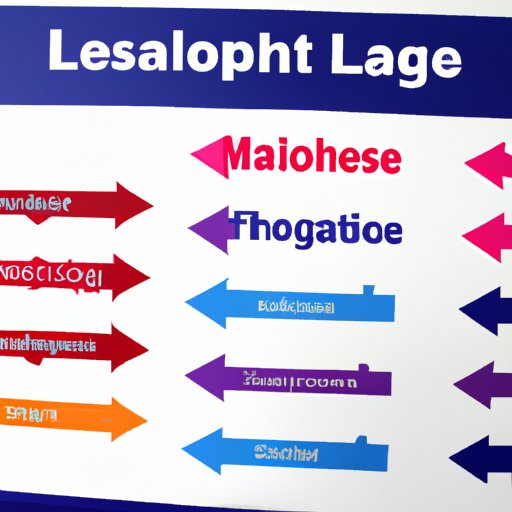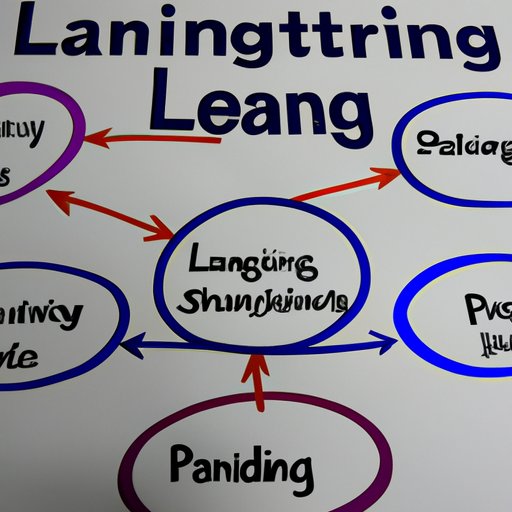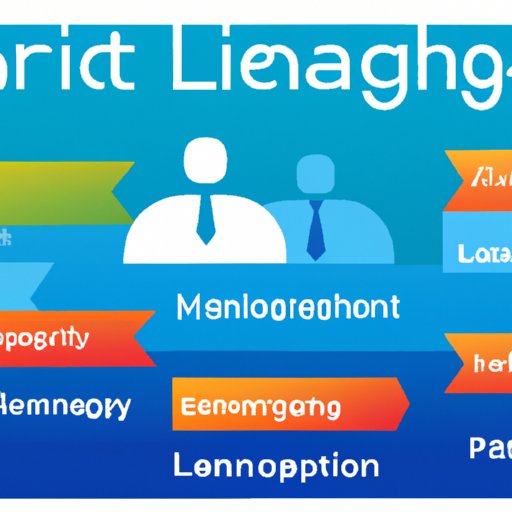Introduction
Leadership is a critical component of any organization’s success. A strong leader can inspire employees, foster collaboration, and drive innovation. But what exactly is leadership, and how does it impact organizations? In this article, we will explore these questions and examine the various ways in which leadership affects organizational success.
Examining the Role of Leadership in Organizational Success
The first step in understanding the role of leadership in organizational success is to define what leadership is. Leadership is defined as the ability to influence, motivate, and direct individuals or groups. Leaders play a key role in setting the tone for a company’s culture and making sure that everyone is working towards the same goals.
The importance of having an effective leader cannot be overstated. An effective leader sets the direction for the organization and provides guidance and support to employees. They are also able to recognize and reward good performance, while providing constructive feedback when needed.
Leadership also plays an important role in strategic planning. Strategic planning involves setting long-term goals and determining how best to achieve them. Effective leaders are able to create a vision for the future and develop strategies to reach those goals. They must also be able to assess the strengths and weaknesses of the organization and adjust plans accordingly.
Finally, leadership has a major impact on the overall workplace culture. Leaders must create an environment that encourages open communication, respect, and collaboration. They should also strive to foster innovation and create an engaging work environment for employees.

Investigating How Leaders Create a Positive Workplace Culture
Creating a positive workplace culture starts with establishing a team-oriented environment. Leaders should encourage employees to work together towards common goals and provide opportunities for collaboration. This includes creating space for open dialogue and brainstorming, as well as recognizing and rewarding team efforts.
Leaders should also promote respect and open communication. This means creating an environment where employees feel comfortable voicing their opinions and ideas without fear of criticism or judgment. Leaders should be willing to listen to different perspectives and take input from all members of the team.
Finally, leaders should strive to foster innovation and creativity. This means encouraging employees to think outside the box and come up with new solutions to old problems. Leaders should also provide resources and support to help employees develop new ideas and products.
Exploring the Impact of Leadership on Employee Engagement and Performance
Creating an engaging work environment is essential for employee engagement and performance. Leaders should strive to make work meaningful and purposeful for employees. This means giving employees autonomy and allowing them to take ownership of their work. It also means providing clear expectations, feedback, and recognition for a job well done.
Understanding employee motivation is also essential for effective leadership. Leaders should strive to understand what motivates each individual and tailor their approach accordingly. This could include providing incentives, offering career development opportunities, or simply recognizing and appreciating employees for their hard work.
Finally, leadership has a major impact on employee performance. Effective leaders are able to set clear goals, provide direction, and motivate employees to achieve their best. They should also be able to identify areas for improvement and provide feedback and support when needed.

Analyzing Different Leadership Styles and Their Effects on Organizations
There are several different leadership styles, each of which has its own strengths and weaknesses. Autocratic leadership is a top-down approach that emphasizes obedience and control. Democratic leadership focuses on involving employees in decision-making and fostering collaboration. Transformational leadership is focused on inspiring and motivating employees to achieve their best. Finally, laissez-faire leadership is a hands-off approach where the leader allows employees to make decisions independently.
Each of these leadership styles has its own advantages and disadvantages. Autocratic leadership can lead to employees feeling disengaged and uninspired, while democratic leadership can be too slow and inefficient. Transformational leadership can help create a motivated and productive workforce, but it can also be difficult to maintain. Laissez-faire leadership can lead to chaos and lack of accountability.

Understanding the Link Between Leadership and Strategic Planning
Leaders play a key role in developing strategies and setting organizational goals. They must be able to identify the organization’s strengths and weaknesses and develop plans to capitalize on the former and address the latter. Leaders should also be able to assess the external environment and adjust plans accordingly.
Leaders also have an important role in goal setting. They must be able to identify realistic and achievable goals and communicate them clearly to employees. They should also be able to provide guidance and support to help employees reach those goals.
Finally, leaders must be able to evaluate the effectiveness of strategic plans. This includes assessing progress towards goals and making adjustments as needed. Leaders should also be able to identify areas of improvement and develop strategies to address those weaknesses.
Evaluating the Effectiveness of Leadership Development Programs
Leadership development programs are designed to help leaders hone their skills and become more effective. These programs typically focus on teaching leaders how to be better communicators, better listeners, and better problem solvers. They may also include topics such as conflict resolution and team building.
It is important to evaluate the effectiveness of leadership development programs to ensure that they are meeting their objectives. This includes assessing the impact of the program on the organization as well as on individual leaders. It is also important to identify key components of successful programs and make sure that they are included in any new programs.
Conclusion
In conclusion, leadership plays a critical role in organizational success. Leaders must be able to create a positive workplace culture, foster collaboration and innovation, and motivate and inspire employees. They must also be able to develop strategies, set realistic goals, and evaluate the effectiveness of strategic plans. Lastly, leadership development programs can be a valuable tool for helping leaders hone their skills and become more effective.
This article has explored the various ways in which leadership impacts organizations and the importance of having an effective leader. It has examined different leadership styles and their effects on organizations, as well as the role of leaders in developing strategies, creating a positive workplace culture, and improving employee engagement and performance. Furthermore, it has evaluated the effectiveness of leadership development programs and identified key components of successful programs.
Further research should be conducted to explore the link between leadership and organizational success. Additionally, more studies should be conducted to assess the impact of different leadership styles on organizations and to identify the most effective methods for developing leaders.
(Note: Is this article not meeting your expectations? Do you have knowledge or insights to share? Unlock new opportunities and expand your reach by joining our authors team. Click Registration to join us and share your expertise with our readers.)
